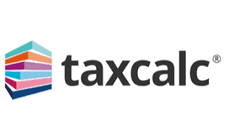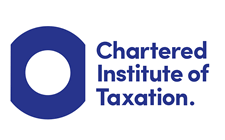Court of Appeal shuns Upper Tribunal’s interpretation of salaried members rules
The Court of Appeal has sided with HMRC regarding the definition of “significant influence” in respect of the salaried members rules. What happened and what does this mean for members of limited liability partnerships (LLPs)?

The salaried members rules treat individual members of an LLP as employees for the purposes of income tax and National Insurance where three conditions are met. The rules aim to prevent individuals from benefitting from the lower tax rates available to self-employed individuals without taking on the risks and responsibilities associated with owning a business.
In HMRC v Bluecrest Capital Management (UK) LLP, the case concerns the application of condition B, which applies where the member does not have significant influence over the affairs of the LLP. The members of the LLP (BC) in question contended that some portfolio managers did have significant influence, as they were each managing over $100m investments. The First-tier Tribunal (FTT) and the Upper Tribunal (UT) agreed with BC that “significant influence” can mean influence over part of the LLP’s affairs. However, the Court of Appeal found that the FT and UT had erred in law. It was confirmed that in order to “fail” condition B, a member’s influence should apply to the affairs of the whole LLP and must be held via legally enforceable rights and duties of members, i.e. the LLP agreement. The appeal was allowed, the court set aside the decision of the UT and has remitted the case to the FTT for reconsideration.
Members of LLPs should review the application of the salaried members rules if they, like BC in this case, previously relied on HMRC guidance in respect of the level of influence required.
Related Topics
-
When will you have to register your new business for MTD?
The timetable for mandatory use of Making Tax Digital for Income Tax Self-Assessment (MTD ITSA) by existing businesses is well established. But when must you use MTD ITSA if you start a new business or create a new income stream?
-
EU law change for virtual events: how will it affect you?
Your business organises live events online, charging delegates a fee to attend. What are the rules about charging VAT and what changes took place on 1 January 2025 that will affect you if EU delegates attend your sessions?
-
Forthcoming changes to statutory sick pay
According to statistics from the Office for National Statistics (ONS), the rate of sickness absence fell to an average of 4.4 working days lost per worker in 2024, down from 4.9 days in 2023. Whilst this is good news for employers, forthcoming changes to statutory sick pay (SSP) are less good news. What do you need to know?









 This website uses both its own and third-party cookies to analyze our services and navigation on our website in order to improve its contents (analytical purposes: measure visits and sources of web traffic). The legal basis is the consent of the user, except in the case of basic cookies, which are essential to navigate this website.
This website uses both its own and third-party cookies to analyze our services and navigation on our website in order to improve its contents (analytical purposes: measure visits and sources of web traffic). The legal basis is the consent of the user, except in the case of basic cookies, which are essential to navigate this website.